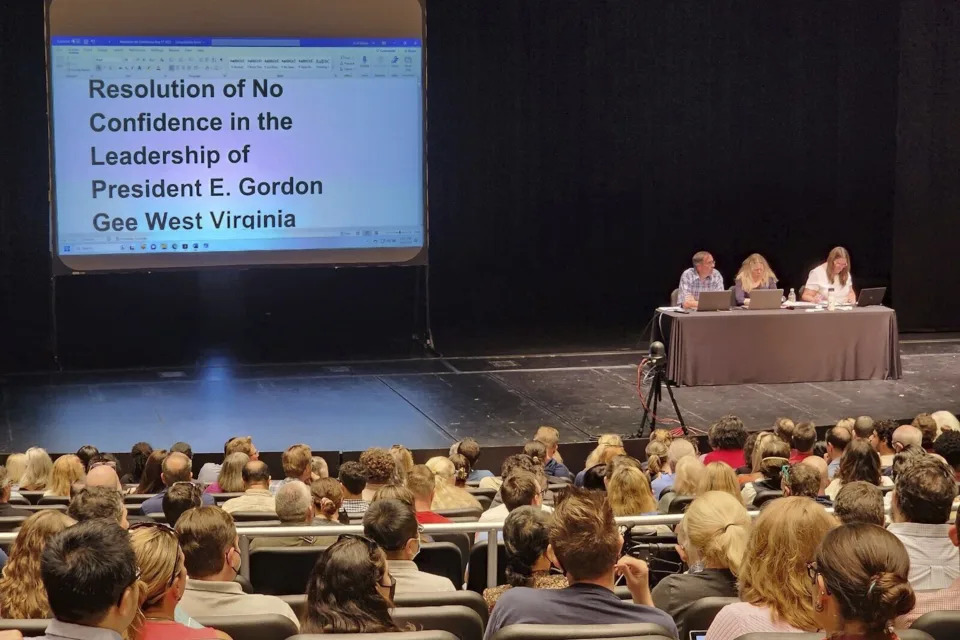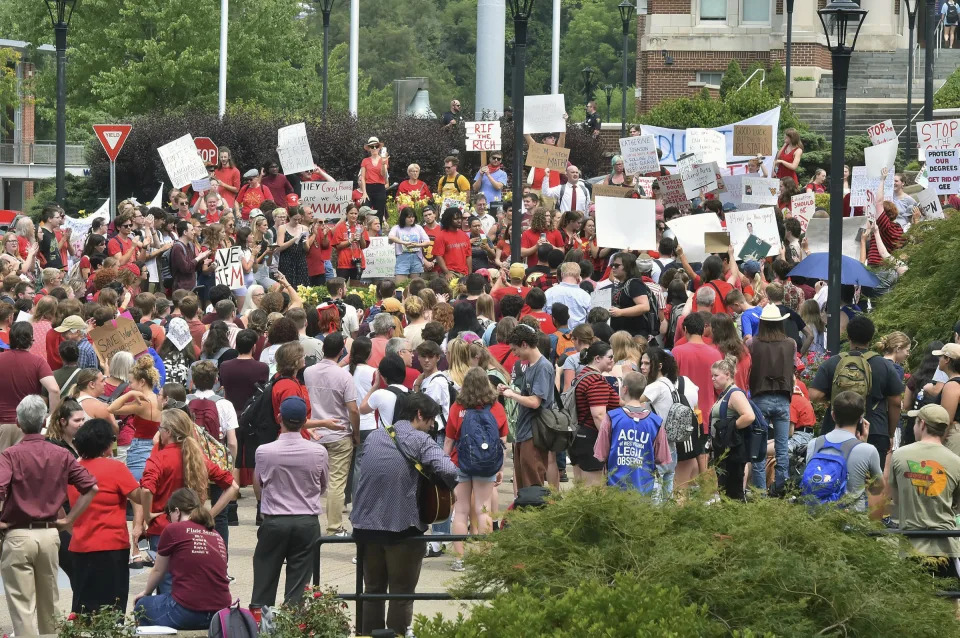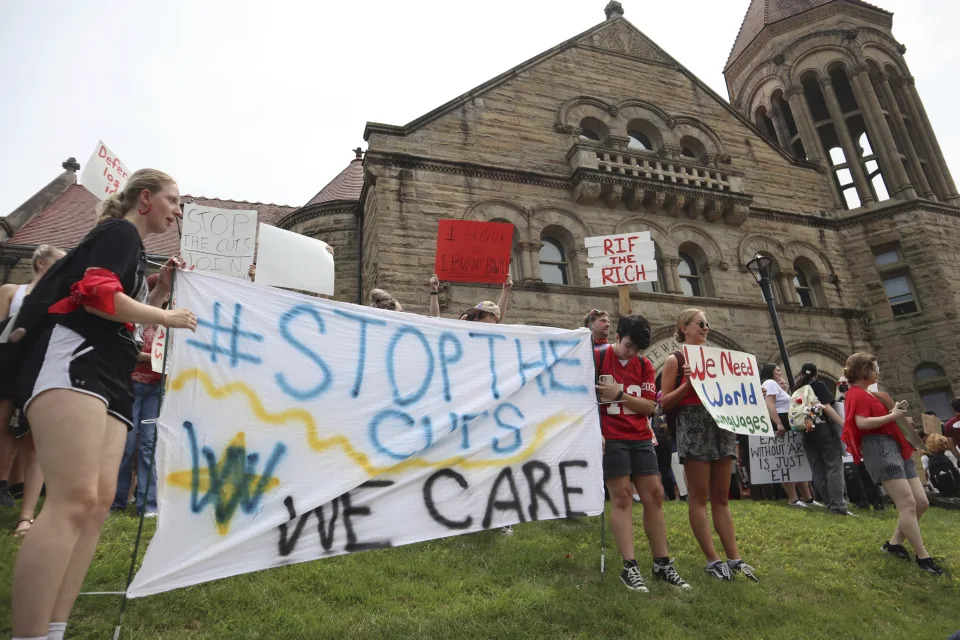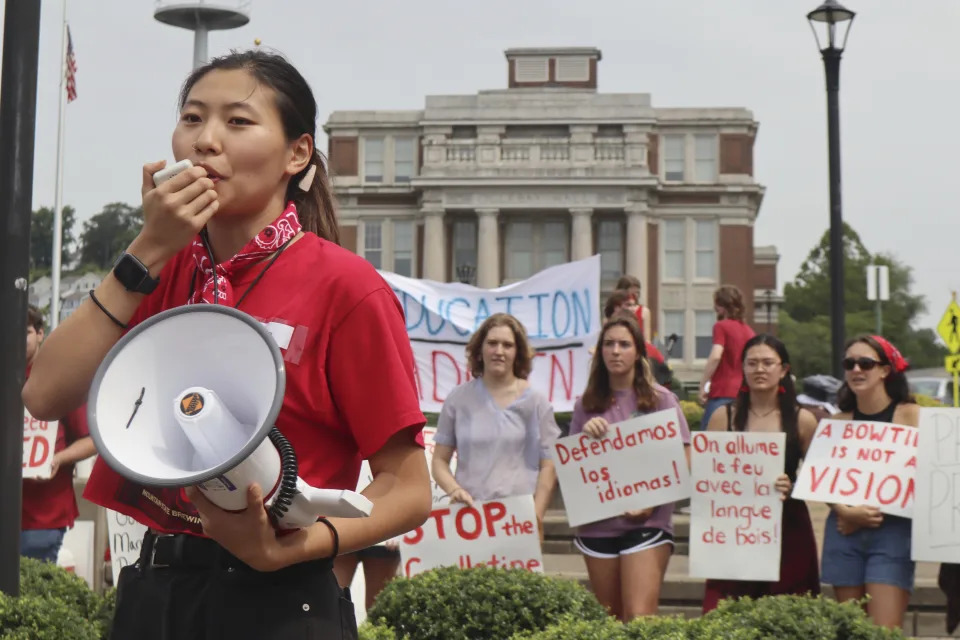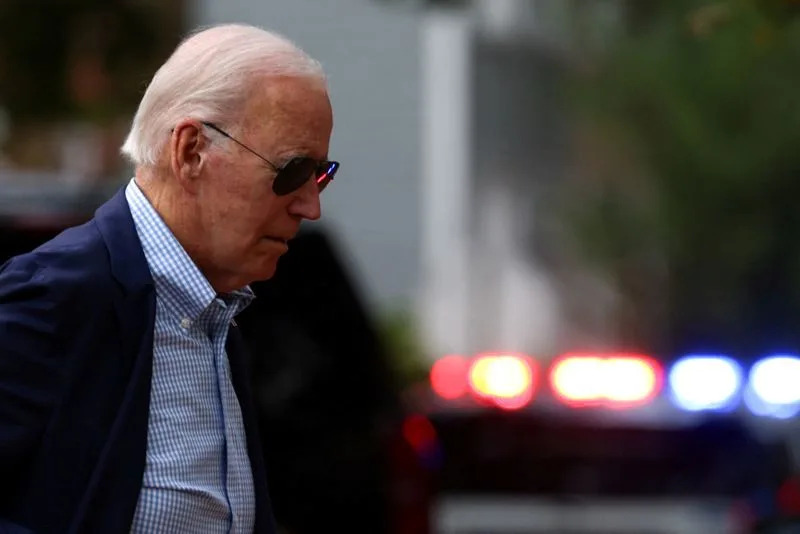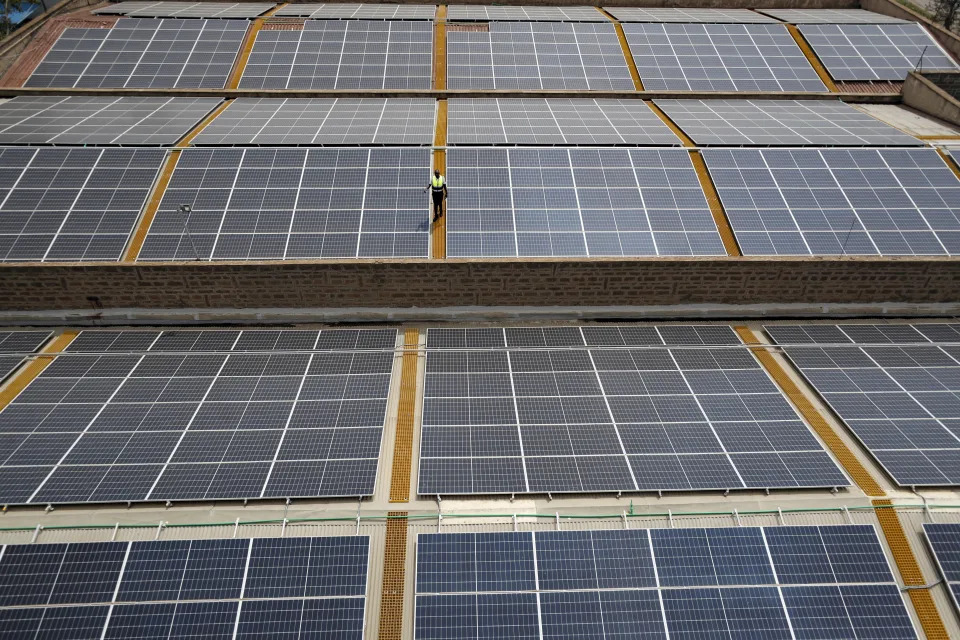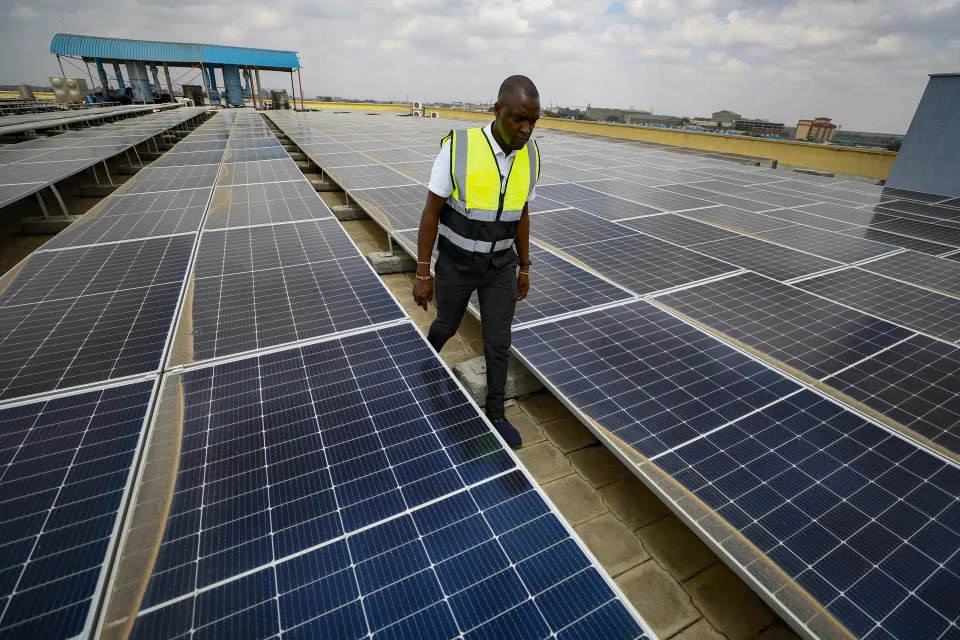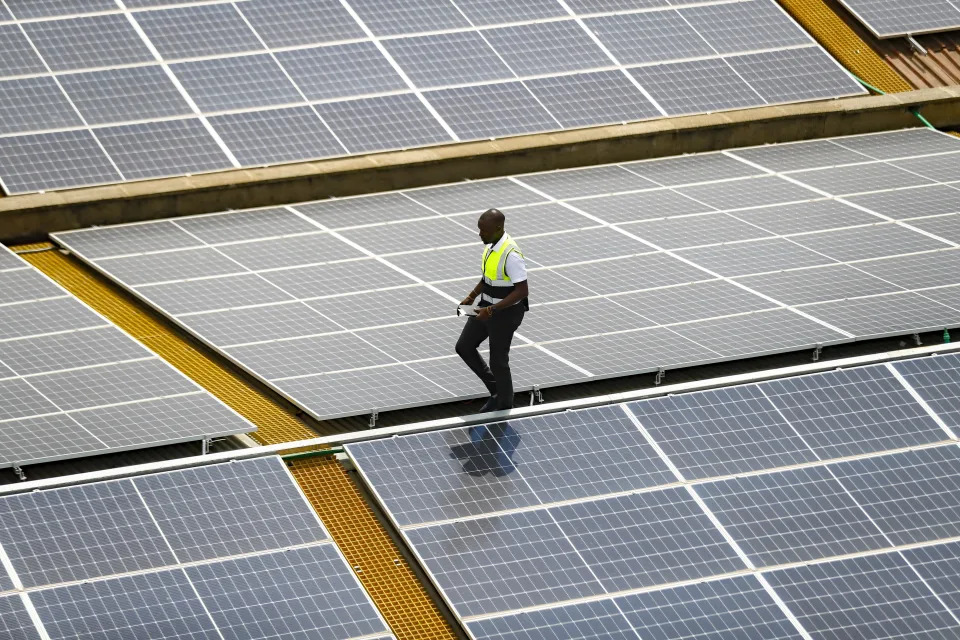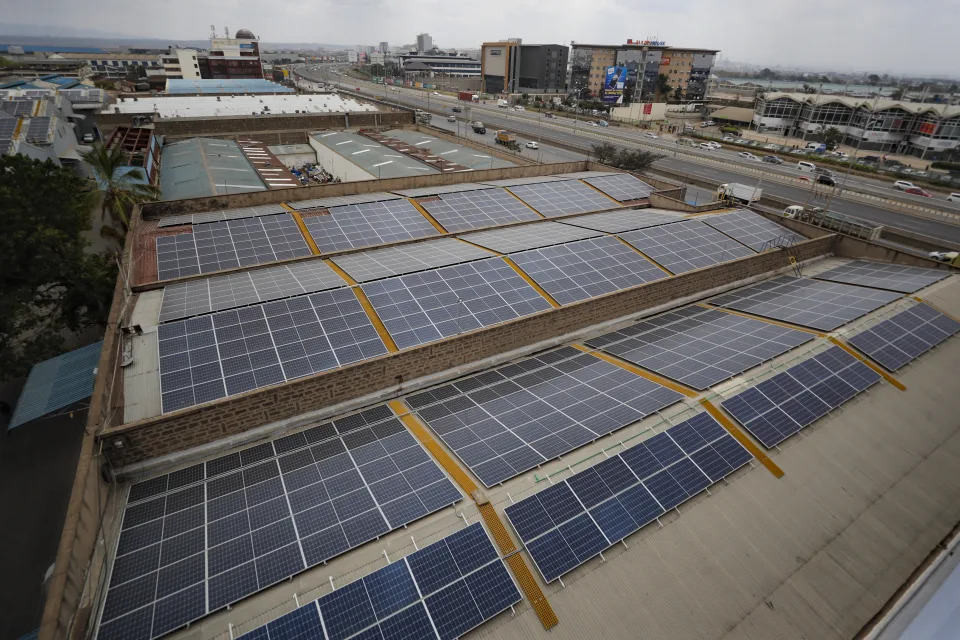Thu, September 7, 2023
By David Shepardson
(Reuters) -General Motors on Thursday made a counterproposal to the union representing its U.S. hourly workers in a bid to avoid a costly strike, but United Auto Workers President Shawn Fain called the offer "insulting."
The largest U.S. automaker said it offered workers a 10% wage hike and two additional 3% annual lump sum payments over four years in its offer to the union ahead of the Sept. 14 contract expiration.
Last week, Ford said it had offered a 9% wage increase through 2027 and 6% lump sump payments, much less than the 46% wage hike being sought by the union. The UAW has said 97% of members voted in favor of authorizing a strike if agreement is not reached.
Fain, who represents 146,000 workers at the Detroit Three, said GM's offer was "an insulting proposal that doesn’t come close to an equitable agreement for America’s autoworkers.... The clock is ticking. Stop wasting our members’ time. Tick tock."
GM shares were down 1.3% in mid-day trading.
GM said the wage hike is the largest proposed since 1999. It is also offering a $6,000 one-time inflation-related payment and $5,000 in inflation-protection bonuses over the life of the agreement, along with a $5,500 ratification bonus.
Chrysler-parent Stellantis said Wednesday it planned to make a counteroffer to the UAW this week.
GM said that under its offer, current temporary employees will receive a 20% increase to $20 per hour wage and it would shorten the time it takes to get to the maximum wage rate for permanent employees - mirroring proposals from Ford.
GM President Mark Reuss said in a video posted on Thursday "we need a fair contract that both rewards our employees and protects the long-term health of our business."
A UAW strike that shuts the Detroit Three manufacturers could cost carmakers, suppliers and workers over $5 billion, Michigan-based Anderson Economic Group estimated.
With new car inventories tight, consumer experts have said that could translate into higher car prices - an important component of inflation.
Last week, the UAW filed unfair labor practice charges with the National Labor Relations Board against GM and Stellantis saying they refused to bargain in good faith.
The union's demands include a 20% immediate wage increase followed by four 5% annual wage hikes, defined-benefit pensions for all workers, 32-hour work weeks and additional cost of living hikes. GM is proposing to give employees an additional paid holiday.
The UAW also wants all temporary workers at U.S. automakers to be made permanent, seeks enhanced profit sharing and the restoration of retiree health-care benefits and cost-of-living adjustments.
The UAW said Ford's profit-sharing formula change would have cut payouts by 21% over the last two years.
J.P.Morgan on Thursday said supply chain disruptions from a potential UAW strike would cut new vehicle production, drive up used car prices and put pressure on margins in the personal auto insurance business.
(Reporting by David Shepardson; additional reporting by Ben Klayman; Editing by Nick Zieminski and Tomasz Janowski)
Here’s why Biden can’t do much to prevent an auto strike
Chris Isidore, CNN
Thu, September 7, 2023
President Joe Biden may hope the United Auto Workers union will not strike the nation’s three unionized automakers. But right now about all he can do is hope.
Biden doesn’t have the legal authority he would have if a freight railroad or airline was threatening to strike. In those cases, a different labor law gives the president the authority to order both sides to continue on the job. So the best he can do is apply public pressure.
But despite his reputation as a pro-union president, his influence with the union is fairly limited, especially considering its criticism of the administration’s support of a move away from gas-powered cars to EVs, which the union sees as bad for the jobs of many of its members.
And his ability to pressure the automakers is also limited, given what they see as the need to compete with nonunion automakers such as Tesla and foreign auto brands.
There are 145,000 UAW members spread across General Motors, Ford and Stellantis, the company that makes vehicles for the US market under the Jeep, Ram, Dodge and Chrysler names. The union rank-and-file overwhelmingly approved strikes starting September 15 against any of the companies that doesn’t have a tentative labor deal in place by then.
The administration has so far avoided three potential strikes that could have devastated the nation’s economy — at UPS, the ports up and down the West Coast and the nation’s four major freight railroads.
A 10-day strike against all three automakers would cost the US economy more than $5 billion, according to analysis by Anderson Economic Consulting, a Michigan research firm. Not only would the automakers and union members take an economic hit, but so would suppliers and many other businesses nationwide. The six-week strike at GM alone in 2019 was enough to put Michigan into a recession, even if that didn’t cause a wider nationwide economic downturn
Joe Biden speaks at the United Auto Workers union hall in Warren, Michigan, during the 2020 presidential campaign. - Jim Watson/AFP/Getty Images
A strike against all three automakers would be the first time in UAW history that the union will have waged a simultaneous strike against the “Big Three.” It would be the nation’s largest strike in 25 years. And UAW President Shawn Fain vows the union is ready to strike all three if there aren’t agreements by the 11:59 pm ET contract expiration on September 14.
Uneasy relations between UAW and Biden
Fain has been critical of Biden at some times, pleased with him at others.
The union is not pleased with administration’s support of industry efforts to convert from traditional internal-combustion-engine powered vehicles, to electric vehicles, which have far fewer moving parts and require roughly 30% less hours of labor to build.
The automakers are getting government loans to build more than 20 EV battery plants nationwide, many in Southern states, to power those vehicles. Those plants are expected to pay a fraction of the wages paid to UAW members at the vehicle assembly, engine and transmissions plants under the current contract, let alone the significantly higher wages they’re demanding in these negotiations
.
President Joe Biden after touring the General Motors' electric vehicle assembly plant in Detroit in November 2021. - Jonathan Ernst/Reuters
“These companies are extremely profitable and will continue to make money hand over fist whether they’re selling combustion engines or EVs. Yet the workers get a smaller and smaller piece of the pie,” said Fain in June when Ford and South Korean battery manufacturing partner SK got a $9.2 billion federal loan to build three battery plants. “Why is Joe Biden’s administration facilitating this corporate greed with taxpayer money?”
But after Biden and Fain met at the White House in July, Fain has played down his criticism of the president, who has come out and echoed some of the UAW talking points in the negotiations, saying that he supported “a fair transition to a clean energy future.”
Biden said automakers should agree that the automakers should “honor the right to organize,” since the new battery plants will not automatically have its employees represented by the UAW. He also said that when engine or transmission plants close due to the transition from ICE to EVs, the automakers should “retool, reboot and rehire in the same factories and communities at comparable wages, while giving existing workers the first shot to fill those jobs.”
Fain, who has repeatedly referred to the need for a “just transition to EVs,” praised Biden’s comments at that time.
“We appreciate President Biden’s support for strong contracts that ensure good paying union jobs now and pave the way for a just transition to an EV future,” he said.
But even if there are signs of a truce between Biden and Fain, there’s a lot antipathy about Biden by rank-and-file union members who are very skeptical about the need for EVs, and the effect they will have on their jobs. Feeding into those doubts are attack on EVs and Biden’s support for them by Donald Trump.
“Joe Biden’s electric vehicle mandate will murder the US auto industry and kill countless union autoworker jobs forever, especially in Michigan and the Midwest,” said a statement from the Trump campaign Thursday. “There is no such thing as a ‘fair transition’ to the destruction of these workers’ livelihoods and the obliteration of this cherished American industry.”
No UAW endorsement of Biden - yet
Monday, when Biden told reporters on the way to a Labor Day event that he didn’t expect an auto strike, Fain, while expressing “shock” at the comment, didn’t criticize it directly, instead saying it was up to the companies, not the president, on whether there would be deals or strikes.
“I appreciate President Biden’s optimism. I also hope that the Big Three get serious and start bargaining in good faith. We are ready to do what is necessary to get our share of economic and social justice for our members,” Fain told CNN Monday afternoon. “We have a long way to go and a short time to get there.”
While the AFL-CIO has already endorsed Biden’s reelection campaign, calling him the most pro-union president of our lifetime, the UAW has thus far declined to endorse him. Fain told CNN that the endorsement would have to be earned.
He did send a warning shot to the White House Wednesday when he said Biden and other Democrats would have to show which side they’re on if there is a strike.
“I think our strike can reaffirm to [Biden] of where the working-class people in this country stand and, you know, it’s time for politicians in this country to pick a side,” he said in a CNBC interview. “Either you stand for a billionaire class where everybody else gets left behind, or you stand for the working class, the working-class people vote.”
Biden has named close adviser Gene Sperling, a Michigan native, as the administration’s point person to monitor the talks. But so far neither side has requested federal mediation in negotiations. And Fain has made clear the union intends to strike on September 15 against any company that doesn’t reach a tentative deal, so it’s unlikely the union would appreciate any government intervention at this late date.
Different role preventing other strikes
The Biden administration played very different roles in the earlier negotiations at UPS, the ports and the railroads.
At UPS, it followed the Teamsters union’s desire that it stay out of negotiations, and a tentative deal was reached a week before a strike deadline which was later overwhelmingly approved by union membership.
At the ports, acting Labor Secretary Julie Su helped mediate the talks after being invited in by both sides. There, the two sides had both continued to work for months under terms of an expired contract without there being a strike.
At the freight railroads, which operate under a separate labor law from most other private sector workers, Biden and Congress imposed a contract on workers to keep them on the job despite the fact that most had voted against it. The president was criticized by unions for that action.
Biden and Democrats in Congress supported a second bill that would have met a key union demand — sick days for members — but despite majority support in both chambers, it failed to get the 60 votes it needed to pass the Senate. However, since then, most of the railroads have reached agreements with most of the unions to grant the workers the sick day provisions they wanted.
Updated Wed, September 6, 2023
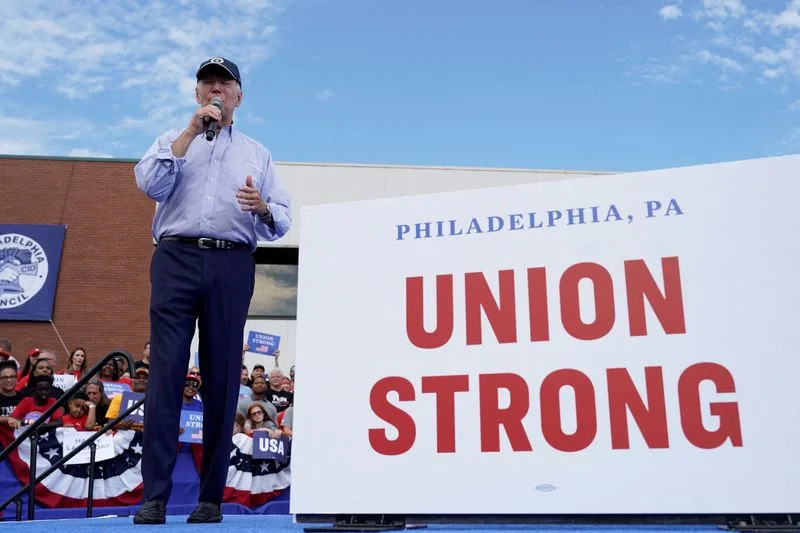
Detroit UAW workers strike threat tests Biden's plan to win union votes
By Nandita Bose and David Shepardson
WASHINGTON (Reuters) -U.S. President Joe Biden's strategy of backing politically crucial unions while avoiding strikes that cripple the economy has hit a bump in Detroit.
During a summer of labor unrest, Biden has touted his pro-labor policies by speaking out for unions, while his administration behind the scenes tries to smooth the way for deals with employers to avoid costly walkouts, union leaders and administration officials said.
But in a reminder of how hard it is to appease energized workers while tamping down on price hikes that cause inflation, Biden and auto workers union UAW - the only major union not to endorse his 2024 presidential run - are at loggerheads.
Biden's Labor Day prediction that the union would not strike against Detroit's automakers ahead of a Sept. 14 contract deadline was soundly rejected by UAW President Shawn Fain.
"He must know something we don't know," said Fain in response, adding that he was "shocked" by the comment. "Maybe the companies plan on walking in and giving us our demands on the night before. I don't know, but he's on the inside on something I don't know about."
White House Press Secretary Karine Jean-Pierre said Biden's comments about the UAW over Labor Day was him being "an optimistic person."
The president remains "optimistic" about a resolution of negotiations with the UAW, she said on Tuesday, and believes the union is at the "heart of an electric vehicle future that is Made in America with union jobs."
Labor unions like the UAW - which represents 146,000 workers at General Motors, Ford and Stellantis NV's North American unit who are demanding cost of living increases and pay that matches company profits - are key to Biden's game plan for winning reelection in 2024.
He needs their support to win key states like Pennsylvania and Michigan again, which stand to bear the brunt of any major strikes against carmakers.
A UAW strike that shuts Detroit's Big Three manufacturers could cost carmakers, suppliers and workers over $5 billion, a study by the Michigan-based Anderson Economic Group says. With new car inventories slim, consumer experts say that could translate to higher car prices - an important component of inflation.
Biden is "more pro-labor than any other president but he is doing a balancing act when it comes to strikes," said Kate Bronfenbrenner, director of labor education research at Cornell University's School of Industry & Labor Relations (ILR).
Biden created a White House team in 2021 to support new unions, which his administration says are key to fighting U.S. inequality, and has backed collective bargaining and union wage increases since taking office. The White House has tried to play a role in several recent large-scale union contract negotiations involving rail workers and West Coast port workers.
On Wednesday, Biden reiterated that "collective bargaining means everyone wins," and said the successful negotiations to resolve a labor dispute at West Coast ports will have a direct impact on lowering inflation. Workers there ratified a new six-year contract last month that includes a 32% pay raise.
While other major labor unions have endorsed Biden's 2024 run, the UAW, which backed Biden in 2020, has held out, citing his electric vehicle policies. Biden's Republican rival, Donald Trump, stepped up his attacks on the Democrat's EV policies over the Labor Day weekend, urging auto workers to support him. Trump won Michigan in 2016, helping propel him to the White House; Biden beat him by 154,000 votes in Michigan in 2020.
The UAW failing to endorse Biden is "a bit of a danger signal," given Michigan's importance in 2024, said Harley Shaiken, labor professor at the University of California, Berkeley. The hesitancy to endorse Biden, Shaiken said, "could convince many UAW members, 'Well, if the leadership doesn't think they're so great, why not Trump?'"
SEASON OF STRIKES
The labor tensions in Detroit come as unionized workers across a wide range of industries are striking, or threatening to strike, to win back concessions made during the pandemic.
In 2022, there were 23 large strikes in the U.S. involving 1,000 workers or more, affecting over 120,000 workers, according to the Bureau of Labor Statistics. In 2023, the data through August shows 34 similar work stoppages affecting over 142,000 workers. Around half a million more threatened strikes in the first half of 2023, estimates from national labor unions show.
Biden, 80, is tying his 2024 re-election bid to the health of the economy, highlighting job growth, rising wages and fading recession fears. At the same time, the Biden campaign is seeking donations from corporations and executives, and endorsement from business for its economic policies.
Accelerating Detroit's shift to electric vehicles is a central element of Biden's climate policy, and the administration is offering billions of dollars in federal subsidies to spur domestic EV and battery production.
UAW members in Michigan, Ohio, Indiana, Illinois and other Midwestern states, however, mainly build combustion trucks and SUVs.
WHITE HOUSE'S ROLE
The president has directed his staff to engage in "prudent policymaking," over labor issues, two senior White House officials said in late July, indicating that the White House will not jump into every high-profile negotiation. They said they are in constant touch with unions and employers, monitoring the progress in talks.
"We don't view our role as waiting for more opportunities to jump in and facilitate," one of the officials said.
The White House last week announced $12 billion in Energy Department grants and loans that automakers could use to retool factories to build electric vehicles, a nod to the UAW's push to stop Stellantis from closing a Jeep assembly plant in Belvidere, Illinois. The company blamed the decision to idle the plant on the high cost of converting to electric vehicles.
That is a contrast from direct mediation by administration officials last year in an agreement to prevent a national rail strike that could have devastated the American economy.
Biden's intervention provoked criticism from some workers and labor allies, who blamed the administration for undercutting their negotiating position.
That dynamic is why the Teamsters, representing UPS workers, urged the White House to stay out of its talks at a critical phase in July - as it ultimately did, labor experts said.
(Reporting by Nandita Bose and David Shepardson in Washington, Additional reporting by Joseph White in Detroit, Editing by Heather Timmons and Deepa Babington)



